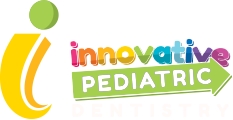
We love pearly whites here at Innovative Pediatric Dentistry. Though who doesn’t? Teeth are fascinating! After all, they help us chew, speak and, of course, smile. Being a Naperville dentist for kids, we’re experts on all things dental, which is why we thought we’d share some interesting and fun facts about teeth that kids will love.
Beyond just giving you a little extra something for your next trivia night, you could also pass these fun facts about your kids’ teeth. The more knowledgeable kids are about their bodies, the more empowered they feel to take care of them, teeth and gums included. Well, without further ado, let’s get to the facts.
7 Fun Facts About Teeth
-
Tooth enamel is the hardest substance in the human body!
The shiny, white stuff that covers the teeth, known as enamel, is even stronger than bone. That’s right, this superhero substance has the highest percentage of minerals of any tissue in the body, coming in at a whopping 96%. The main mineral is called hydroxyapatite, or crystalline calcium phosphate.
Yet, as strong as teeth are, unlike other tissues in the body, they can’t repair themselves, which is why it’s so important to take amazing care of your teeth!
-
Speaking of strength, you can exert, on average, 200 pounds of pressure when you bite down.
With all of that force, it’s no wonder many kids (and adults!) use their teeth to open things or chew on super hard stuff like ice cubes or pens. Yet, these are both among the worst habits for teeth and can lead to chipping or cracking, loss of fillings and erosion of the enamel.
As for using the teeth as tools or holding objects in your mouth when your hands are full, this too can lead to damage to the teeth or result in you accidentally swallowing an object.
-
All 20 of a baby’s primary teeth are already in their jaw at birth.
Baby teeth hide under the gums until it’s time for them to erupt. The first tooth usually comes in when your baby is between six and 10 months and the last primary teeth are typically in before their third birthday. Check out this baby teeth eruption chart to see when the rest of their chompers will make an appearance.
-
There are only 20 baby teeth but up to 32 permanent teeth.
Yup. This is one of the teeth facts that people don’t often realize but when those permanent teeth erupt, we get a few extra ones. The first permanent molars come in between the ages of six and seven. They erupt into an empty space and aren’t replacing baby teeth.
The same goes for the permanent second molars, which most kids get at around 12 or 13 years old. At that point, your child will have 28 teeth. The last permanent teeth to erupt are the wisdom teeth, which not everyone has. When they do come in, it’s usually during the late teen or early adult years.
-
Your teeth are unique to you just like your fingerprint.
Did you know identical twins don’t have the same exact set of teeth? Your teeth are completely one of a kind. You know what else is unique? Your tongue print. No two tongues or sets of teeth are the same. You just got two fun facts about teeth for the price of one!
-
You’ll make about 10,000 gallons of spit in your lifetime.
Okay, so this one isn’t technically one of our teeth facts but it is tooth-related since saliva is so important for dental health. Over the course of a lifetime, most people produce enough spit to fill two swimming pools and it’s actually a good thing! While saliva is mostly water, it also boasts a bunch of other substances like proteins, minerals, antibacterial compounds, enzymes, mucus and electrolytes.
These substances are powerhouses and do things like keep the mouth lubricated for chewing, kick off the digestive process, help with wound healing, prevent bad breath, and neutralize plaque acids and bacteria to help ward off tooth decay and gum disease.
-
The average person spends 38.5 days over their lifetime brushing their teeth.
Phew. That’s a lot of brushing. Bonus fact: About 300 types of bacteria make up dental plaque. The plaque clings to the teeth and releases acids that eat away at the tooth’s enamel, which is what causes cavities in kids and adults and can also lead to gum disease. Brushing and flossing get rid of this plaque to prevent cavities and keep the gums healthy.
Since oral health is tied to our overall health, spending adequate time brushing is ideal. It’s recommended you start brushing kids’ teeth using a tiny smear of fluoride toothpaste as soon as their first tooth comes in. Then, when any two teeth are touching, you can start flossing once daily. Once they have most of their teeth, brush for at least two minutes twice a day.
If these interesting and fun facts about teeth have inspired you to protect your child’s pearly whites, schedule a checkup with a dentist to make sure their smile stays healthy. If you’re looking for a fun, friendly kids’ dentist in Naperville, book a visit at Innovative Pediatric Dentistry today by giving us a call at (630) 848-PEDO.


